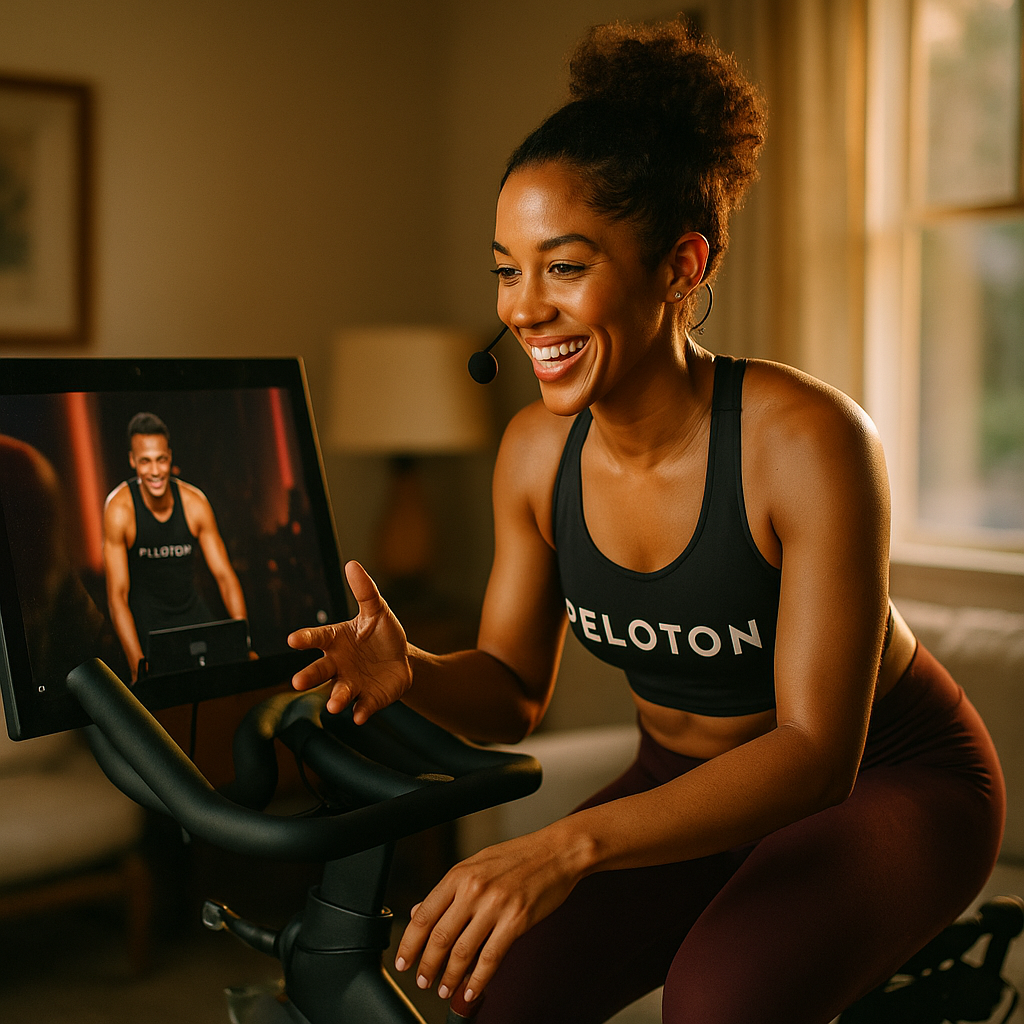Peloton has redefined the fitness industry, not just through its cutting-edge hardware but by turning instructors into powerful brand ambassadors. This strategy has fueled a loyal community and boosted the company’s visibility. If you wonder how individual personalities shape a fitness empire’s success, read on for insights into Peloton’s unique approach.
Peloton’s Instructor-Centric Brand Strategy
Peloton’s business model stands out for placing its instructors at the heart of its brand identity. While many fitness platforms rely on anonymous coaches or royalty-free workout footage, Peloton selected charismatic, diverse, and highly skilled individuals to lead its classes. These instructors are meticulously chosen for their ability to motivate, inspire, and connect, embodying the Peloton ethos both on and off the screen.
The company regularly invests in instructor training, professional development, and personal branding workshops. This investment ensures each instructor maintains high standards of expertise and authenticity—key elements supported by Google’s Experience, Expertise, Authoritativeness, and Trustworthiness (EEAT) best practices. By positioning instructors as the face and voice of the brand, Peloton boosts its credibility while cultivating strong emotional bonds with members.
The Power of Instructor-Led Community Building
Peloton instructors play a pivotal role in nurturing the brand’s signature community culture. As of 2025, the Peloton Members Facebook group boasts over two million active members, many of whom engage directly with instructors. This ongoing interaction consolidates loyalty and transforms regular users into brand advocates, resulting in one of the most active online fitness communities worldwide.
Instructors champion inclusivity, celebrate milestones, and even host themed rides or runs based on member requests. This two-way communication goes far beyond standard customer engagement. It creates a sense of belonging, allowing members to feel recognized and valued. Furthermore, Peloton’s instructors often share their own wellness journeys and vulnerabilities, reinforcing authentic connections and validating members’ personal experiences.
Social Media Influence: Beyond the Peloton Platform
The brand’s strategy also thrives on leveraging instructor influence across other digital channels. Peloton encourages its instructors to cultivate their own social media followings on platforms like Instagram, TikTok, and X (formerly Twitter). As a result, instructors like Tunde Oyeneyin and Cody Rigsby regularly reach audiences of millions, amplifying Peloton’s message far beyond its proprietary app.
This social reach creates organic buzz and attracts new demographics. Instructors share workout previews, wellness tips, and behind-the-scenes glimpses, generating engagement and sharing user-generated content. The visibility and relatability of instructors serve as powerful magnets for prospective members, enhancing Peloton’s credibility and supporting the company’s continued growth in 2025.
Brand Partnerships and Influencer Marketing Evolution
Peleton instructors increasingly partner with external brands, serving as both fitness influencers and ambassadors for related industries. These collaborations—ranging from athleisure apparel to wellness tech products—extend Peloton’s reach while positioning instructors as respected thought leaders. Peloton’s careful oversight ensures that such partnerships remain congruent with the brand’s core values and trusted image.
This influencer marketing evolution is data-driven, tracking engagement, conversion rates, and sentiment through sophisticated analytics tools. The company’s transparency about partnership guidelines and instructors’ sponsored posts is part of its EEAT-focused approach to ensure members receive honest, clear information. This transparency further cements consumer trust—essential for long-term brand equity and member retention.
Fostering Authenticity and Diversity
Another key to Peloton’s success lies in its commitment to authenticity and diversity among its instructors. The team is intentionally diverse in terms of race, gender, age, and fitness approach, meaning members are more likely to see themselves represented. This representation is not only ethically important but also broadens the brand’s market appeal and fosters deeper emotional resonance with a global audience.
Peloton supports instructors in developing their voice, story, and on-screen presence without forcing scripted messaging. This freedom allows personalities to shine and personal experiences to resonate. By celebrating differences and authentic stories, Peloton strengthens its position as an inclusive lifestyle brand, not just a digital fitness company.
Measuring the Impact: Growth, Loyalty, and Retention
Peloton closely monitors instructor impact through a blend of qualitative feedback and quantitative data. Key performance indicators include class attendance rates, social media engagement, and Net Promoter Scores (NPS). As of 2025, Peloton maintains a member churn rate lower than 4%, well below industry averages—a testament to instructor-driven stickiness and community loyalty.
Surveys conducted among Peloton users reveal that over 70% attribute continued platform usage to the connection they feel with specific instructors. These instructors, as influential brand ambassadors, drive both acquisition and retention. Through regular content innovation, responsive feedback loops, and the cultivation of trust, Peloton’s ambassador strategy evolves to meet member needs and changing market dynamics.
Peloton’s transformation of its instructors into brand ambassadors has been central to its growth and passionate member base. By empowering authentic, diverse voices and leveraging modern influencer strategies, Peloton sustains its community, credibility, and industry leadership. The takeaway? Personality-driven brands foster lasting loyalty in the digital age.
FAQs: Peloton Instructors as Brand Ambassadors
-
Why does Peloton emphasize instructor personalities?
Peloton believes that authentic, charismatic instructors build stronger emotional connections, increasing member engagement and loyalty. Their influence goes far beyond class delivery to community building and brand perception.
-
How do instructors engage with Peloton members?
Instructors interact on the Peloton platform, through social media, and in member-exclusive events. They celebrate member achievements, answer questions, and share personal stories—fostering a sense of inclusion and value.
-
Do Peloton instructors have editorial freedom?
Yes. While instructors represent Peloton’s values, they are encouraged to develop their unique style, story, and on-screen presence. This authenticity is a critical part of Peloton’s brand strategy.
-
What makes Peloton’s approach unique in the fitness industry?
Peloton’s focus on instructor-led community engagement, diversity, and influencer partnerships sets it apart from competitors who may view instructors as interchangeable rather than essential brand ambassadors.
-
Can other companies replicate Peloton’s brand ambassador model?
While the model can inspire others, Peloton’s deep investment in culture, training, and authenticity is difficult to replicate fully. Success depends on finding and empowering the right personalities within a strong values-driven framework.
